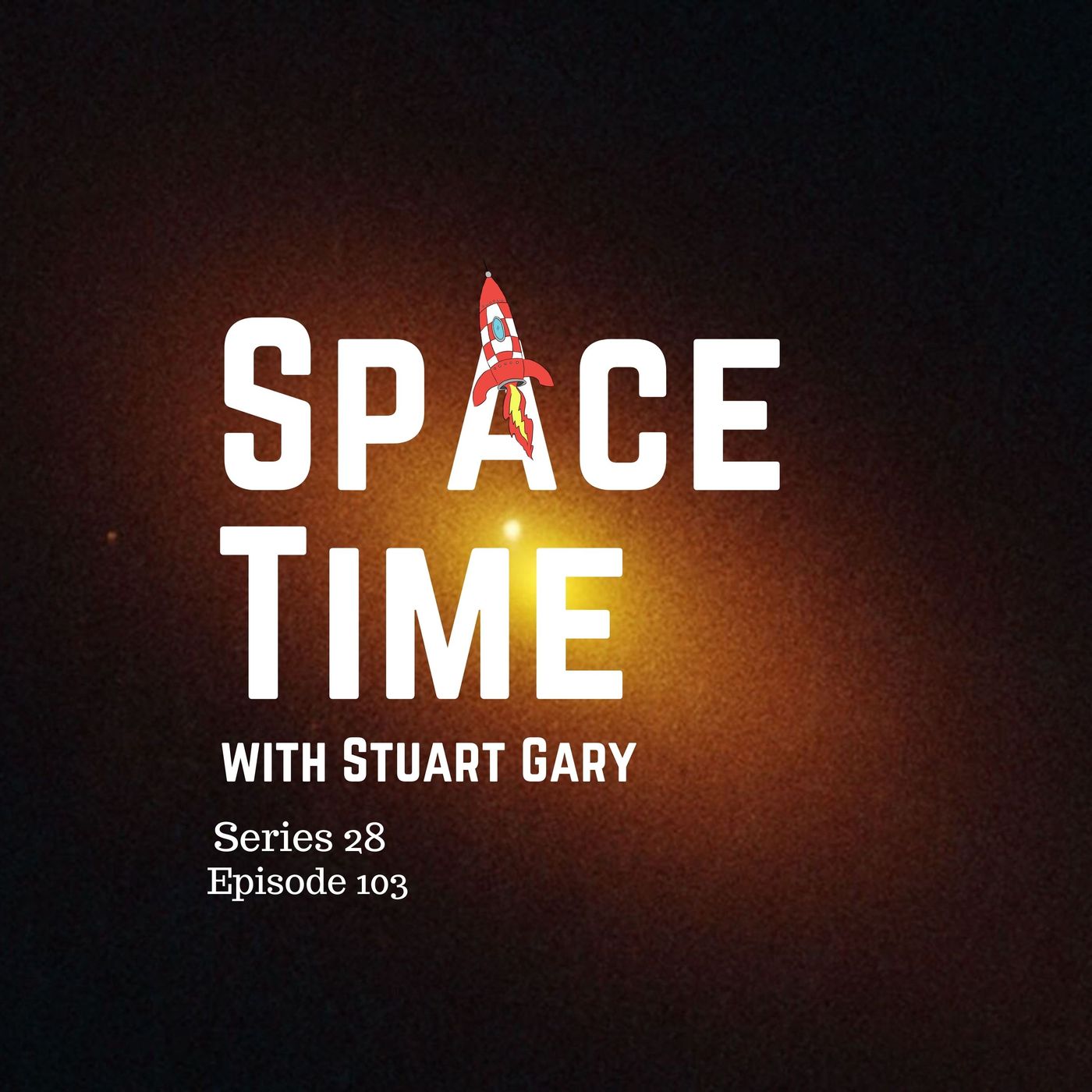Episode Details
Back to Episodes
Cosmic Horror: The Discovery of a Wandering Black Hole and a Meteorite's Journey
Season 28
Episode 103
Published 4 months, 2 weeks ago
Description
This episode of SpaceTime is brought to you by Insta360's newest camera, the GoUltra. To get more details on this go anywhere camera, visit store.insta360.com and for our special offer use the code SPACETIME at checkout.
In this episode of SpaceTime, we uncover the mysteries lurking in the cosmos, from a rogue supermassive black hole to a meteorite crash in Georgia, and the origins of asteroids Bennu and Richie.
An Invisible Monster in the Cosmos
Astronomers have made a chilling discovery of a supermassive black hole, 600 million light years away, that has been lurking in the darkness of space. Using NASA's Hubble and Chandra space telescopes, along with a Very Large Array radio telescope, researchers identified this rogue black hole that consumes stars and planets that venture too close. The black hole was revealed through a tidal disruption event, where a star was torn apart and swallowed, offering a glimpse into the physics of these cosmic behemoths.
Meteorite Slams into Georgia Home
In an extraordinary event, a meteorite crashed through a house in Atlanta, Georgia, on June 26, narrowly missing the homeowner. Witnessed by hundreds, the fireball streaked across the sky before fragments penetrated the roof and ceiling. Planetary geologist Scott Harris retrieved samples for analysis, revealing the meteorite's origins in the asteroid belt, dating back 4.56 billion years, and potentially linked to the breakup of a larger asteroid.
Origins of Asteroids Bennu and Ryugu
Recent research suggests that both Bennu and Ryugu may share a common ancestry, originating from the same collisional family of asteroids known as Polana. Spectral data comparisons indicate similarities between these asteroids, supporting the hypothesis that they were formed from the remnants of a larger body that fragmented early in the solar system's history. This discovery opens new avenues for understanding the evolution of these near-Earth asteroids.
www.spacetimewithstuartgary.com
✍️ Episode References
Astrophysical Journal Letters
https://iopscience.iop.org/journal/2041-8205
Planetary Science Journal
https://www.cambridge.org/core/journals/planetary-science-journal
Become a supporter of this podcast: https://www.spreaker.com/podcast/spacetime-space-astronomy--2458531/support.
In this episode of SpaceTime, we uncover the mysteries lurking in the cosmos, from a rogue supermassive black hole to a meteorite crash in Georgia, and the origins of asteroids Bennu and Richie.
An Invisible Monster in the Cosmos
Astronomers have made a chilling discovery of a supermassive black hole, 600 million light years away, that has been lurking in the darkness of space. Using NASA's Hubble and Chandra space telescopes, along with a Very Large Array radio telescope, researchers identified this rogue black hole that consumes stars and planets that venture too close. The black hole was revealed through a tidal disruption event, where a star was torn apart and swallowed, offering a glimpse into the physics of these cosmic behemoths.
Meteorite Slams into Georgia Home
In an extraordinary event, a meteorite crashed through a house in Atlanta, Georgia, on June 26, narrowly missing the homeowner. Witnessed by hundreds, the fireball streaked across the sky before fragments penetrated the roof and ceiling. Planetary geologist Scott Harris retrieved samples for analysis, revealing the meteorite's origins in the asteroid belt, dating back 4.56 billion years, and potentially linked to the breakup of a larger asteroid.
Origins of Asteroids Bennu and Ryugu
Recent research suggests that both Bennu and Ryugu may share a common ancestry, originating from the same collisional family of asteroids known as Polana. Spectral data comparisons indicate similarities between these asteroids, supporting the hypothesis that they were formed from the remnants of a larger body that fragmented early in the solar system's history. This discovery opens new avenues for understanding the evolution of these near-Earth asteroids.
www.spacetimewithstuartgary.com
✍️ Episode References
Astrophysical Journal Letters
https://iopscience.iop.org/journal/2041-8205
Planetary Science Journal
https://www.cambridge.org/core/journals/planetary-science-journal
Become a supporter of this podcast: https://www.spreaker.com/podcast/spacetime-space-astronomy--2458531/support.